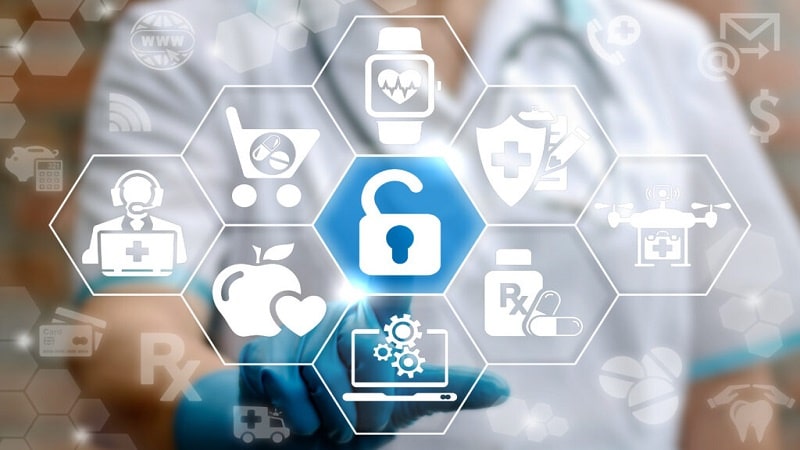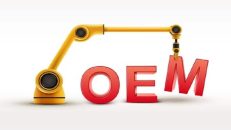
Communication is an important but sometimes underappreciated tool available to both patients and clinicians in healthcare. While the intricacies of medical procedures, advanced technologies, and pharmaceutical innovations frequently dominate the discussions on healthcare, it's the quality of the dialogue between patients and their healthcare providers that can truly unlock better healthcare outcomes.
This article delves into the significance of clear and open communication in the doctor-patient relationship while highlighting the impact an app for tracking health can have on the journey to better health.
The Foundation of Trust

Imagine walking into a doctor's office, uncertain about your symptoms and anxious about potential diagnoses. Now, picture this scenario with a doctor who greets you warmly, listens intently to your concerns, and takes the time to explain every step of the diagnostic process. This stark contrast illustrates communication's foundational role in building trust between patients and doctors.
Trust is the bedrock upon which the doctor-patient relationship is built. Patients need to feel confident that their doctors have their best interests at heart, while doctors rely on patients for honest and complete information to make accurate diagnoses and provide effective treatment plans. Without clear and open communication, this trust can erode, leading to misunderstandings, misdiagnoses, and, ultimately, compromised healthcare outcomes.
The Impact on Diagnosis and Treatment
Effective communication is a two-way street where both patients and doctors play crucial roles. Doctors can make more informed decisions when patients express their symptoms, concerns, and medical history accurately and comprehensively. They can rule out potential causes, order appropriate tests, and prescribe tailored treatments that are more likely to succeed.
On the other hand, doctors who take the time to explain medical conditions, treatment options, and potential risks clearly and understandably empower patients to make informed decisions about their health. This collaborative approach enhances patient engagement and increases adherence to treatment plans, leading to better outcomes.
Reducing Medical Errors
Miscommunication between patients and doctors can have dire consequences, with medical errors being a significant concern. These errors can range from medication mix-ups to misdiagnoses and surgical mishaps.
By fostering a culture of open dialogue, patients are more likely to ask questions, seek clarification, and report any inconsistencies, thus serving as a vital safety net against potential medical errors.
Enhancing Emotional Well-Being
Healthcare isn't just about addressing physical ailments; it's also about caring for emotional well-being. Serious medical conditions can take a toll on a patient's mental health, and the way doctors communicate can greatly impact how patients perceive and cope with their diagnoses.
Empathetic and compassionate communication from doctors can help patients feel understood, supported, and less anxious about their health challenges.
Overcoming Language and Cultural Barriers
Effective communication in healthcare becomes even more critical in today's diverse and multicultural societies. Language barriers, cultural differences, and varying health literacy levels can pose significant challenges. To unlock better healthcare for all, doctors must be adept at navigating these complexities.
Using plain language, offering translated materials, and respecting cultural beliefs are just some of the strategies that can bridge these gaps.
Health Tracking Apps and Doctor-Patient Communication
Empowering Patients with Data
Health tracking apps empower patients by putting valuable health data at their fingertips. From monitoring vital signs and recording symptoms to tracking exercise routines and dietary habits, these apps allow individuals to collect a wealth of information about their health and well-being. This data can be immensely valuable when shared with healthcare providers.
Patients can now arrive at medical appointments armed with comprehensive records of their health metrics and daily habits. This not only facilitates more informed discussions with their doctors but also provides a more holistic view of their health over time, which can aid in diagnosis and treatment decisions.
Facilitating Remote Monitoring
Health tracking apps also enable doctors to remotely monitor their patients' health, which is especially valuable in chronic disease management. For instance, individuals with conditions like diabetes or hypertension can use these apps to regularly track their blood sugar levels or blood pressure.
The data generated can be securely shared with their healthcare providers, allowing for timely interventions and treatment plan adjustments without frequent in-person visits.
Enhancing Accountability and Adherence
One of the challenges in healthcare has been ensuring patient adherence to treatment plans. Health tracking apps can play a vital role in this regard. By setting reminders for medication, exercise routines, or dietary goals, these apps can help patients stay on track with their prescribed regimens.
Moreover, patients can share their progress with doctors, who can offer encouragement and adjustments as necessary. The sense of accountability fostered by these apps can be a powerful motivator, leading to improved adherence and better health outcomes.
Real-Time Communication
Many health-tracking apps now include messaging features that enable real-time communication between patients and healthcare providers. This direct line of communication can be invaluable for addressing questions, concerns, or emerging symptoms promptly.
Patients can seek guidance or clarification, and doctors can offer timely advice, reassurance, or recommendations.
Data-Driven Decision Making
A simple app for tracking health can generate a treasure trove of data that, when analyzed, can provide valuable insights for doctors. Machine learning algorithms can identify trends, anomalies, or correlations within this data, aiding in early disease detection and personalized treatment strategies.
Patient Empowerment

Clear and open communication empowers patients to take an active role in their healthcare journey. Informed patients are more likely to engage in preventive measures, adhere to treatment plans, and make lifestyle changes that promote better health.
When patients and doctors collaborate as a team, the possibilities for improving healthcare outcomes become limitless.
Conclusion
Unlocking better healthcare through effective doctor-patient communication is not an option; it's a necessity. Trust, accurate diagnosis, treatment adherence, error reduction, emotional well-being, and cultural sensitivity all hinge on the quality of communication in healthcare.
As you navigate the ever-evolving landscape of medicine, don't forget that the power of words, empathy, and understanding can be as potent as any medical intervention. It's time to recognize that communication is the key to unlocking a healthier, brighter future for all.










